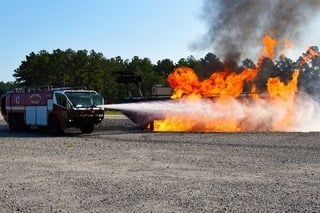Ready and Resilient: The Importance of Emergency Preparedness

By taking these steps, childcare programs can help to keep children safe and reduce the impact of emergencies.
- Create a written emergency plan. The emergency plan should include procedures for responding to different types of emergencies, such as fire, tornado, or earthquake. It should also include contact information for emergency responders and family members. When creating an emergency plan, it is important to identify escape routes and meeting places, establish a communication plan with loved ones, and make sure everyone knows what to do in various emergency situations. It is important to update your emergency plan and kit regularly to account for any changes in your household, such as the addition of new family members, relocation, or changing health needs.
- Conduct regular practice drills. Practice drills will help staff to become familiar with the emergency plan and to develop muscle memory for responding to emergencies.
- Create an emergency supply kit. The emergency supply kit should include food, water, first aid supplies, and other essential items that will be needed in the event of an emergency. An emergency kit should include essential items such as water, non-perishable food, flashlights, batteries, a first aid kit, and any necessary medications.
- Train staff on emergency procedures. All staff members should be trained on the emergency plan and on how to respond to different types of emergencies.
- Communicate with families. Keep families informed about the childcare program's emergency preparedness plan and about any drills that will be conducted.
#Emergency_preparedness is the process of taking proactive steps to ensure that individuals, families, and communities are ready to respond to and recover from a range of potential emergencies or disasters. It involves creating a plan, assembling an emergency kit, and staying informed about potential dangers or threats in your area.
It is crucial to stay informed about potential emergencies or disasters in your area by monitoring local news, weather reports, and emergency alerts. Being prepared for emergencies not only ensures your safety but also reduces the strain on #emergency responders and allows them to prioritize assistance to those in most need.
Emergency preparedness is not just for natural disasters; it also applies to events like power outages, fires, or even a global pandemic.
Taking the time to prepare today can greatly mitigate the impact and stress of an emergency tomorrow. It allows you to act quickly and confidently, knowing that you have taken steps in advance to protect yourself and your loved ones.
Remember, emergencies can happen to anyone at any time, so it is essential to prioritize emergency preparedness in order to ensure personal safety and community resilience.
Emergency preparedness is important in all settings, but it is especially important in childcare. Children are more vulnerable to the risks of emergencies, and they may not be able to understand or cope with what is happening. A well-prepared childcare program can help to keep children safe and reduce the impact of an emergency.
Here are some of the benefits of emergency preparedness in childcare:
- It can help to keep children safe. A well-prepared childcare program will have a plan in place for responding to different types of emergencies. This plan will help staff to know what to do to keep children safe, even in a chaotic situation.
- It can reduce stress and anxiety for children. When children know what to expect in an emergency, they are less likely to feel scared or anxious. A well-prepared childcare program will provide children with age-appropriate information about emergencies and practice drills so that they can feel more prepared.
- It can help children to cope with the aftermath of an emergency. After an emergency, children may experience a range of emotions, including fear, sadness, anger, and confusion. A well-prepared childcare program will have a plan in place to support children's emotional needs after an emergency.
- It can help to protect the reputation of the childcare program. When a childcare program is well-prepared for emergencies, it is more likely to be able to respond quickly and effectively. This can help to protect the safety of children and staff, and it can also help to protect the reputation of the program.
If you are ready to create an Emergency Preparedness Plan for your childcare facility, register today for ChildCareEd’s training course “Emergency and Disaster Preparedness”
- Emergency and Disaster Preparedness
- 45 Hour Child Growth and Development
- Basic Health & Safety and Breastfeeding Awareness
- Emergency Preparedness and Response Planning Resulting from a Natural or Man-Made Event
- Stay Alert! Steps to Emergency Prep Online Version
- Creating an Emergency and Disaster Preparedness Plan
- Bienvenido! Welcoming All Families
- Save on Emergency Preparedness Training!
- Ready and Resilient: The Importance of Emergency Preparedness
- The Importance of Emergency and Disaster Preparedness Plans for Child Care Providers
- Essential Resource for Child Care Providers: Free Emergency Preparedness Plan
- Save Lives With Skill: CPR Training
- Emergency Preparedness in Childcare: Creating and Practicing Safety Protocols
- Every Childcare Provider Must Be Trained in Basic Health & Safety
- Emergency Preparedness Training Every Childcare Provider MUST Know
- Why Basic Health and Safety Training Is Crucial for Child Educators
- Emergency Preparedness Training for Childcare Providers: Keeping Kids Safe in a Crisis
- Stay Ready: First Aid and Emergency Procedures in Early Childhood Education
- 🚨Ready for Anything: Every Childcare Provider Needs Emergency and Disaster Preparedness Training
- Staying Compliant in the Lone Star State: Avoiding Common Licensing Pitfalls
- When Seconds Count: Mastering Emergency Preparedness
- 🌪️Fire Drills, Flashlights & Fast Thinking: Why Emergency Preparedness Is a Must
- Emergency Preparedness in Child Care: What Every Provider Should Know
- Are You Ready to Update Your Maryland Emergency Preparedness Plan (EOP)?
- California Emergency Preparedness Online
- Emergency Preparedness Plans for Child Care Programs